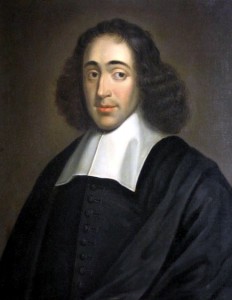 To Harry Austryn Wolfson
To Harry Austryn Wolfson
C/o Brown Shipley & Co 123, Pall Mall
London, S.W.1
Rome. June 16, 1934
It is a real gift, this, of so much hidden light on Spinoza, and I am truly grateful to you for sending it. I can’t thank you for it adequately or make any final comments upon it, because I am leaving Rome, and it is impossible for me to take the two volumes with me. I shall return to them when I get back here in October. But I have already read enough to see how much learning and what perfect simplicity you bring to your task, and how clearly you show the continuity of philosophy through the middle ages and into the mind and language of Spinoza himself. I have often thought that he was the only philosopher of modern times. I now see one reason, that he was not really modern, except as we all must be in our day, but traditional and in the great highway of human speculation: which cannot be said, I think, of any other modern philosopher Your learning, especially your Hebrew learning, enables you to show this clearly. I believe there is another reason also why Spinoza seems to me so pre-eminent: that in spite of being traditional, or because he was not distracted by side issues, he was an entire and majestic mind, a singularly consecrated soul. All these trite dogmas and problems lived in him and were the natural channels for his intuitions and emotions. That is what I feel to make a real philosopher and not, what we are condemned to be, professors of the philosophy of other people, or of our own opinions.
When I return to your volumes I shall be particular keen to discover just how you interpret the mediation of intellect in determining the attributes of God. I have supposed hitherto that there was a radical ambiguity here, and that Spinoza had two notions of substance, one of mere substance, and the other of substance involving its own deployment and making necessary, and intrinsic to its essence, every detail of the universe. These two notions seem to me on different ontological levels; mere Being is an essence only; the universe is the sum and system of existences. But didn’t Spinoza attempt to identify the two, and isn’t that sheer confusion?
From The Letters of George Santayana: Book Five, 1933-1936. Cambridge, MA: The MIT Press, 2003.
Location of manuscript: The Houghton Library, Harvard University, Cambridge MA
